hwa / 화
2022
Solo exhibition at the LUX Center for the Arts.
exhibition text:
Umma never taught me how to formally speak or write in Korean, also known as Hangul. She did not believe that it was necessary for her American-born child to learn something that she wanted to leave behind. Despite her internal bias, she silently retained her cultural identity in her love of food, games, media, and included our family in these activities. One of my fondest memories is playing a card game called hwatu 화투 (flower cards) and my mother using them as a fortune telling device. Hwa can have a plethora of meanings depending on its context, character placement, and if written in either Hangul or Hanja, a traditional Korean writing system that utilizes Chinese characters. Translations include: flower, anger, rage, bloom, and disaster, which echo our navigation of current affairs.
Research of the definition of hwa as well as the perforated ceramic vessels from the Silla and Three Kingdom Dynasties became the foundation for this exhibition, the magic of this cultural history is reinterpreted within ceramic wall pieces and vessels laced with personal meaning and narrative.
The desire to learn more about my cultural background pulled at my core, lighting an internal fire which feeds into psychological distance— a slippery dissonance that fumbles with language and elucidation.
click on image for detail
2022
Solo exhibition at the LUX Center for the Arts.
exhibition text:
Umma never taught me how to formally speak or write in Korean, also known as Hangul. She did not believe that it was necessary for her American-born child to learn something that she wanted to leave behind. Despite her internal bias, she silently retained her cultural identity in her love of food, games, media, and included our family in these activities. One of my fondest memories is playing a card game called hwatu 화투 (flower cards) and my mother using them as a fortune telling device. Hwa can have a plethora of meanings depending on its context, character placement, and if written in either Hangul or Hanja, a traditional Korean writing system that utilizes Chinese characters. Translations include: flower, anger, rage, bloom, and disaster, which echo our navigation of current affairs.
Research of the definition of hwa as well as the perforated ceramic vessels from the Silla and Three Kingdom Dynasties became the foundation for this exhibition, the magic of this cultural history is reinterpreted within ceramic wall pieces and vessels laced with personal meaning and narrative.
The desire to learn more about my cultural background pulled at my core, lighting an internal fire which feeds into psychological distance— a slippery dissonance that fumbles with language and elucidation.
click on image for detail
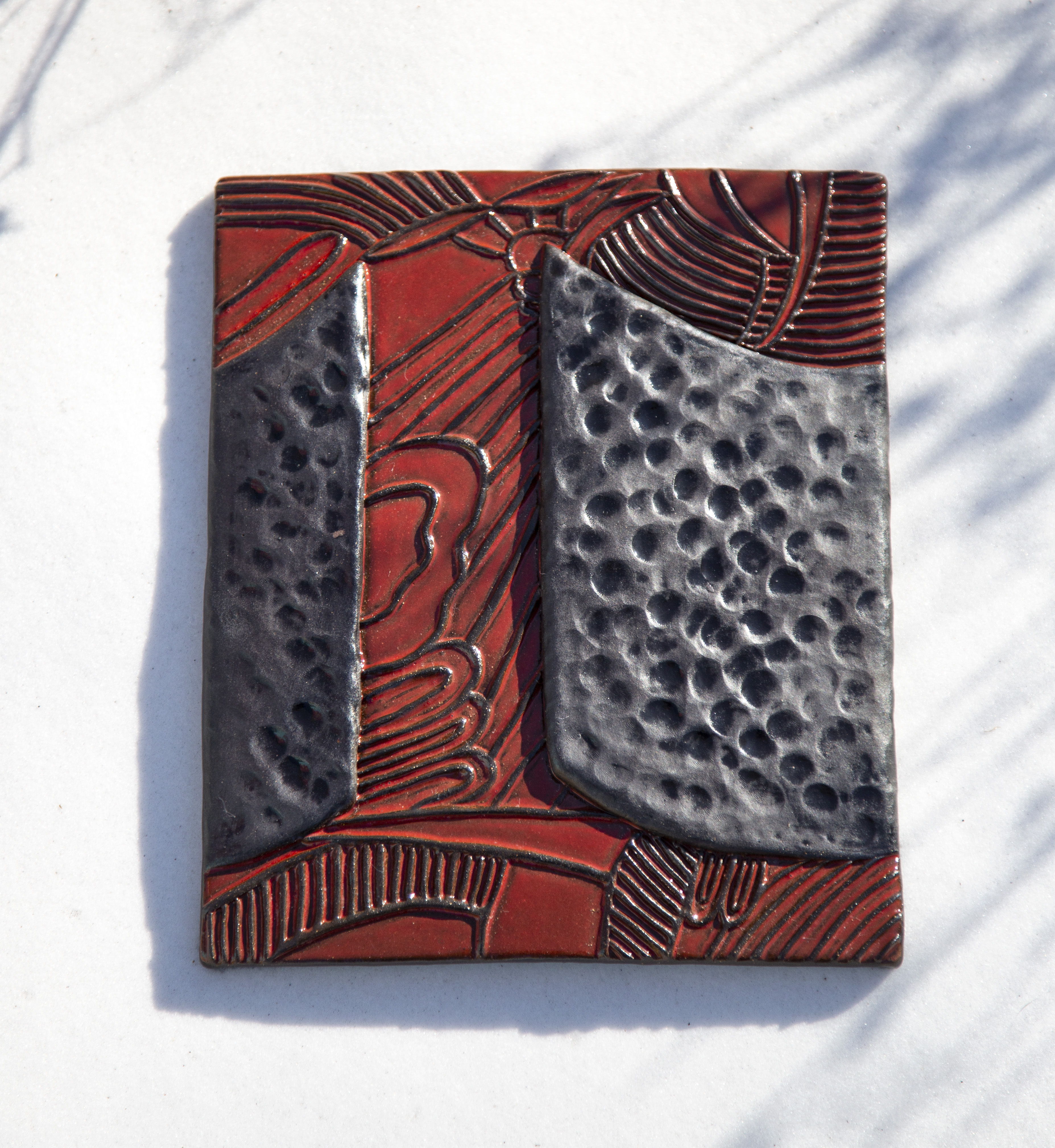
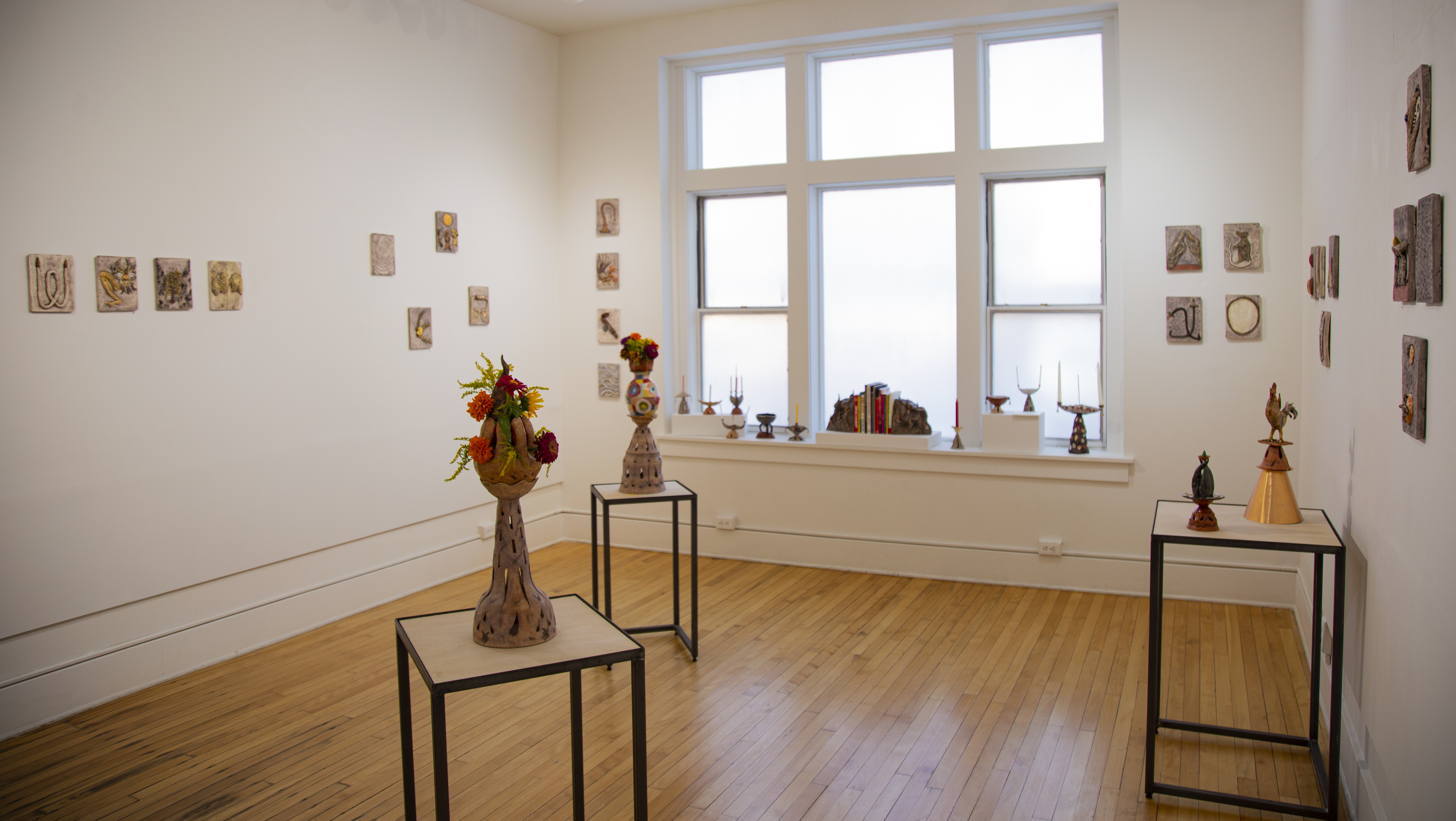
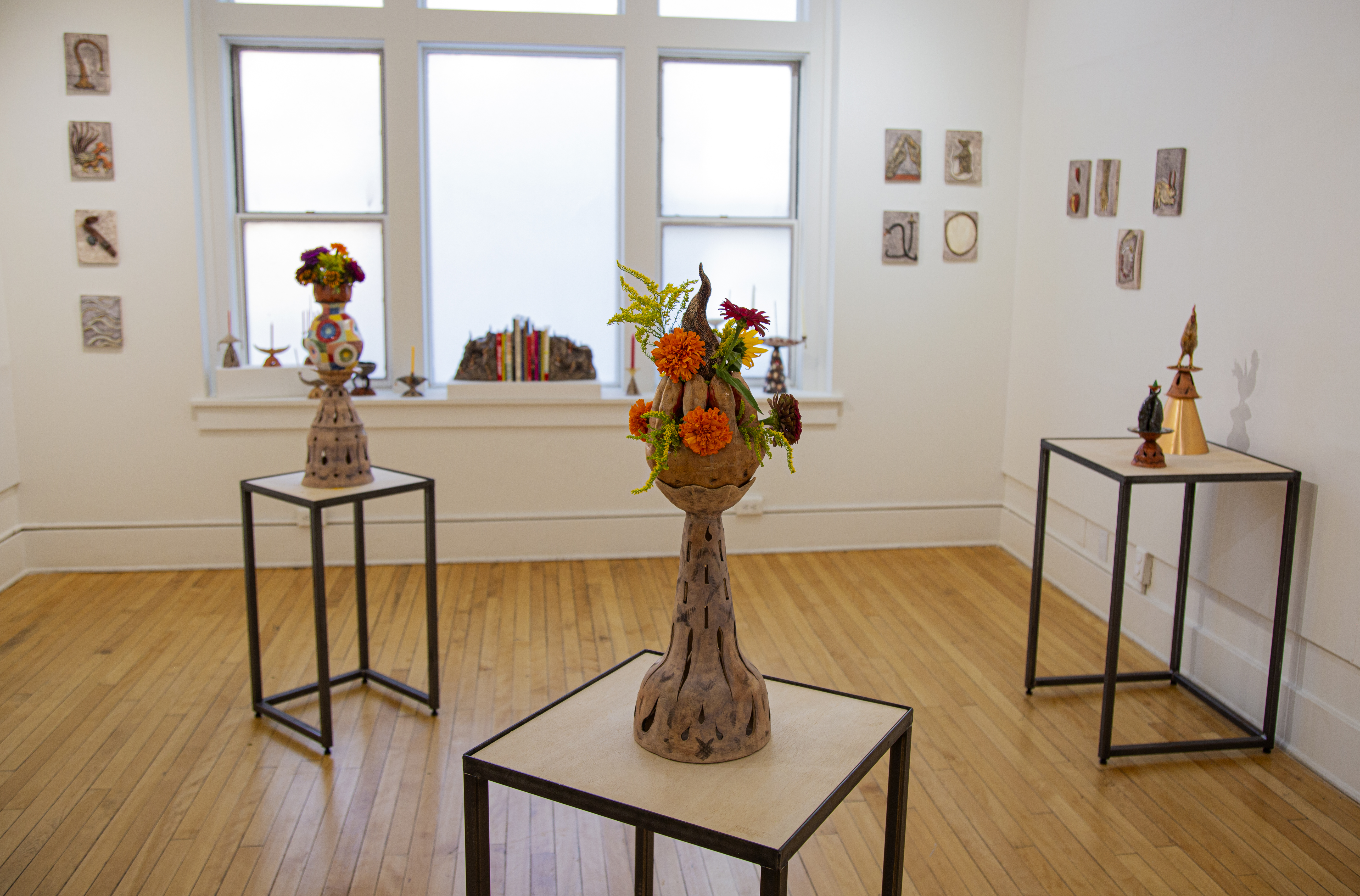
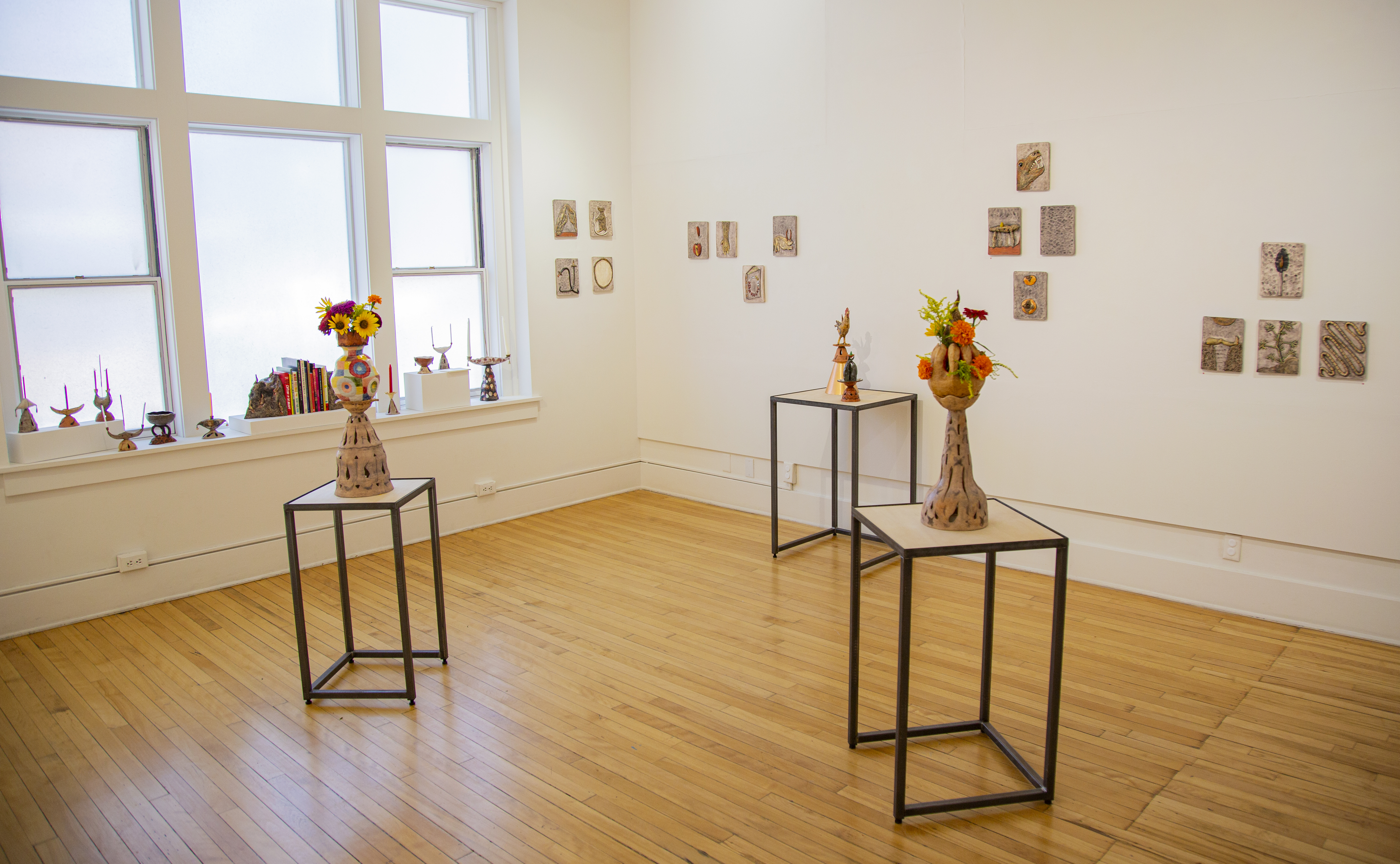
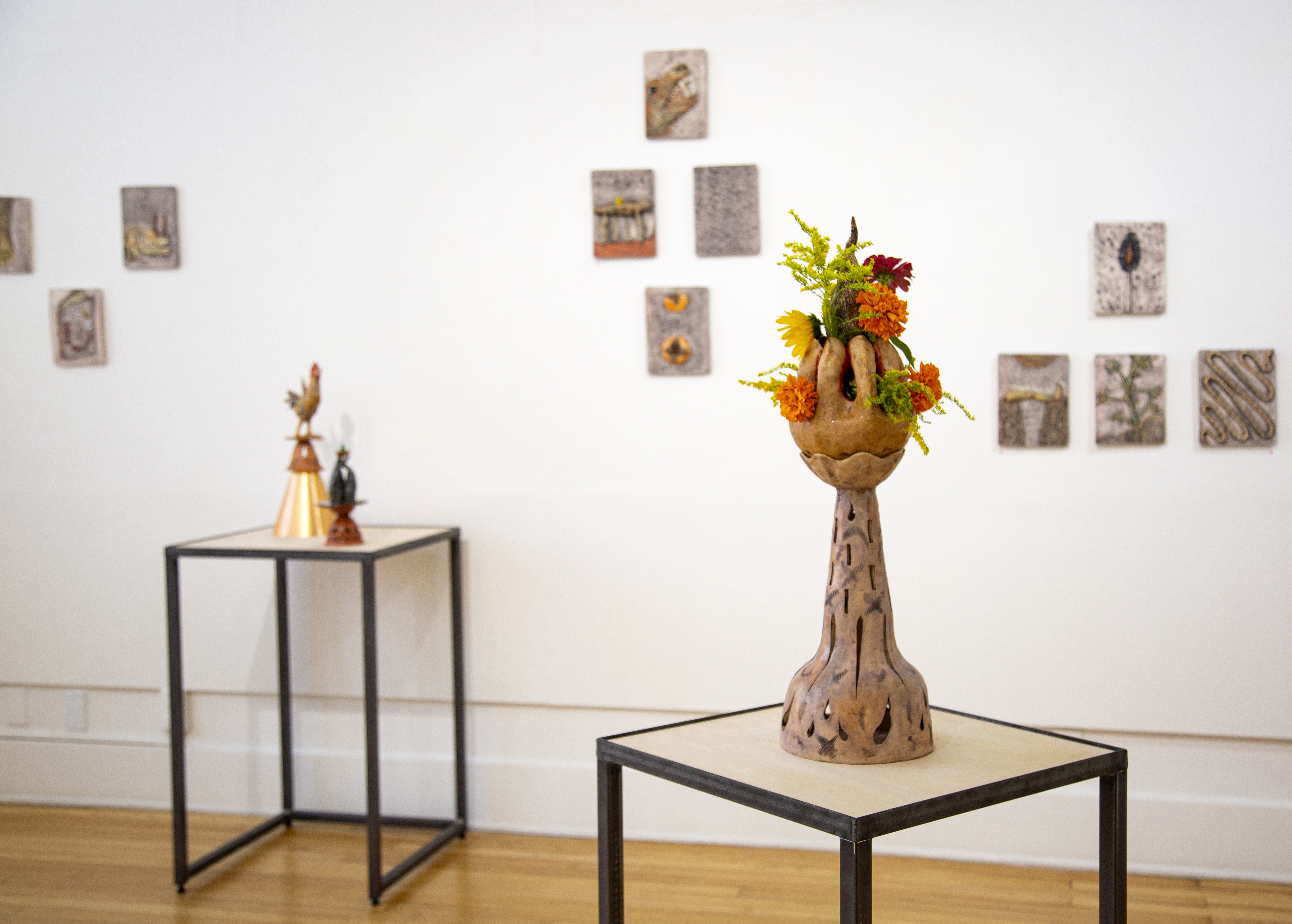

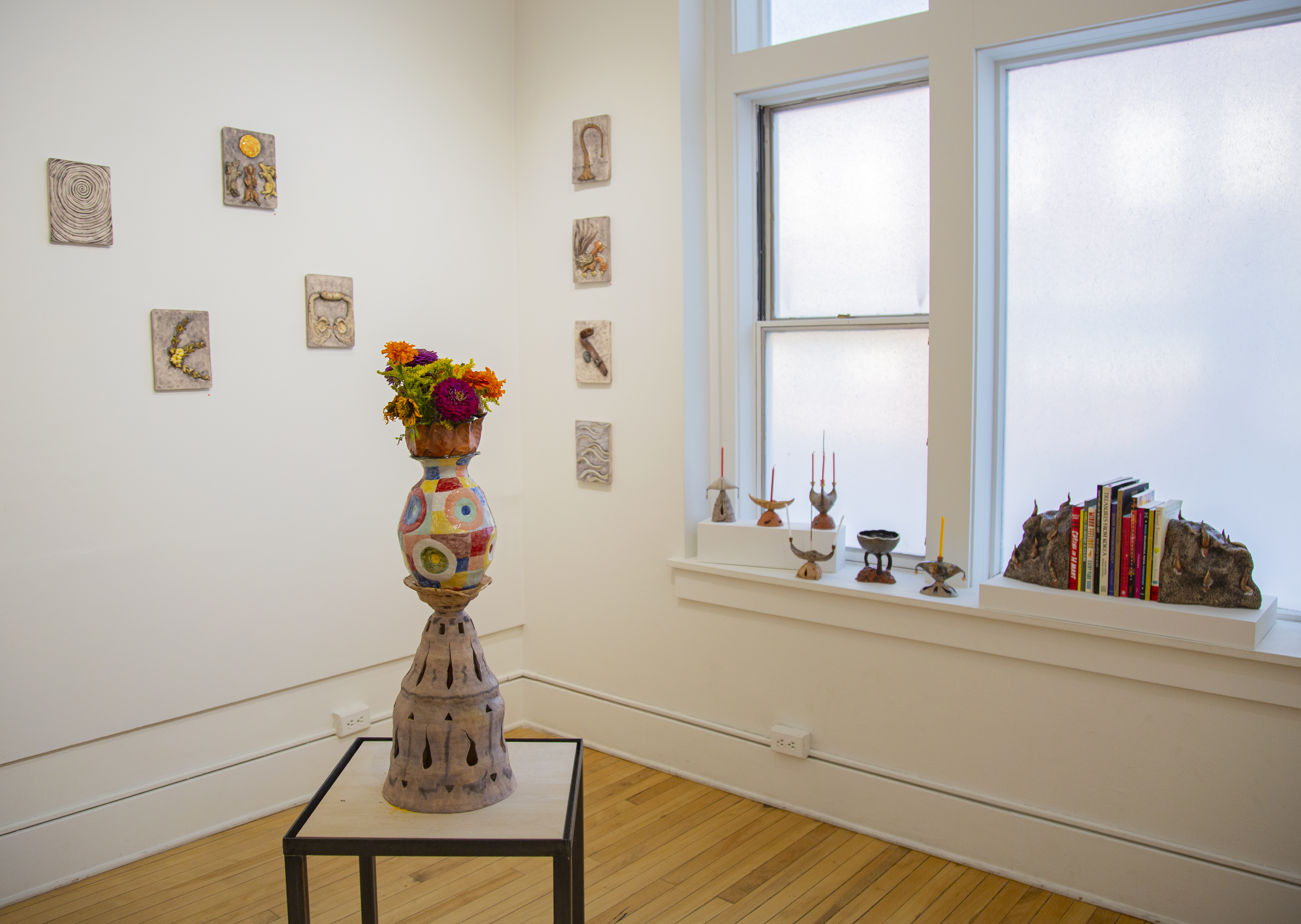
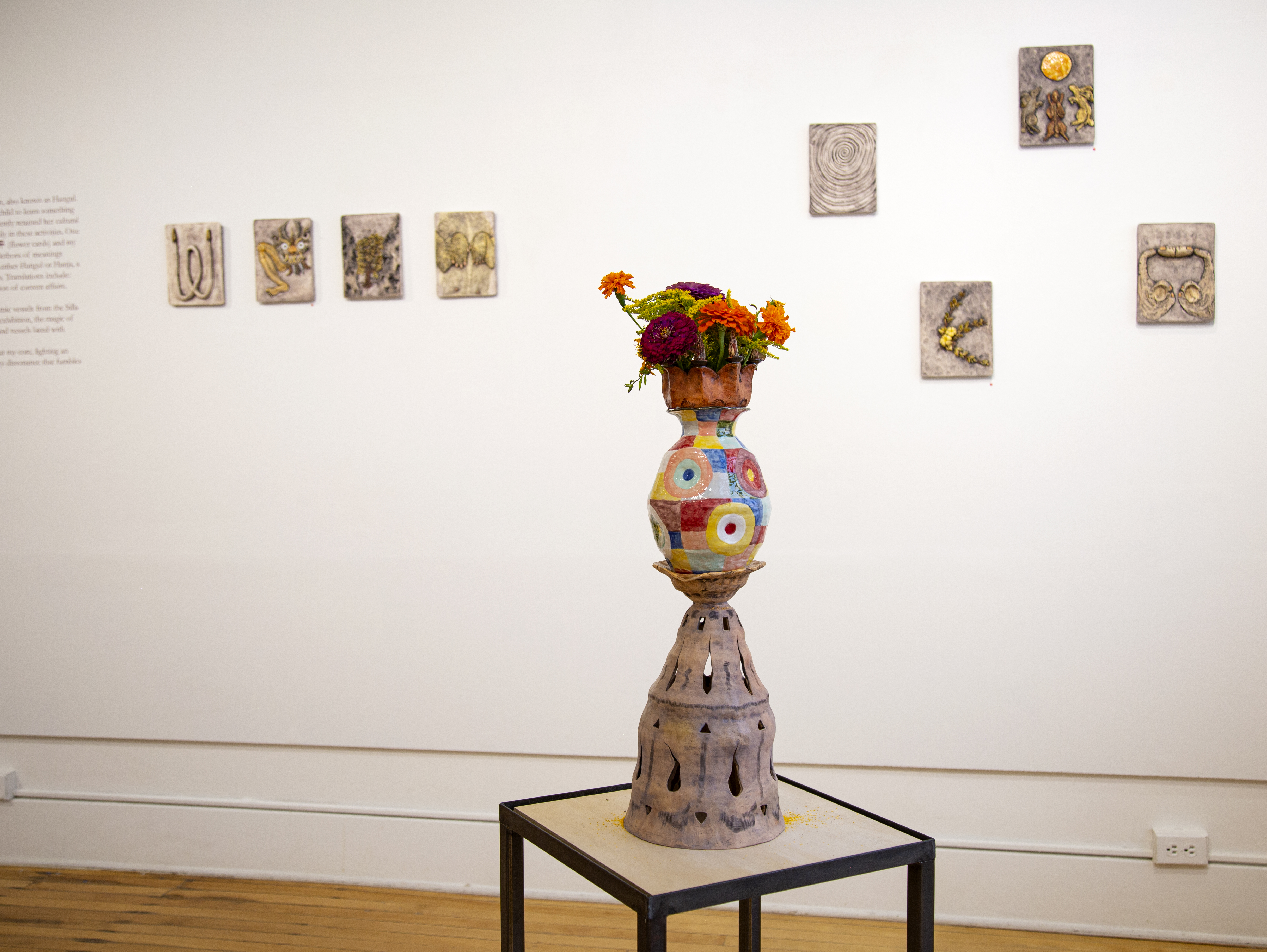
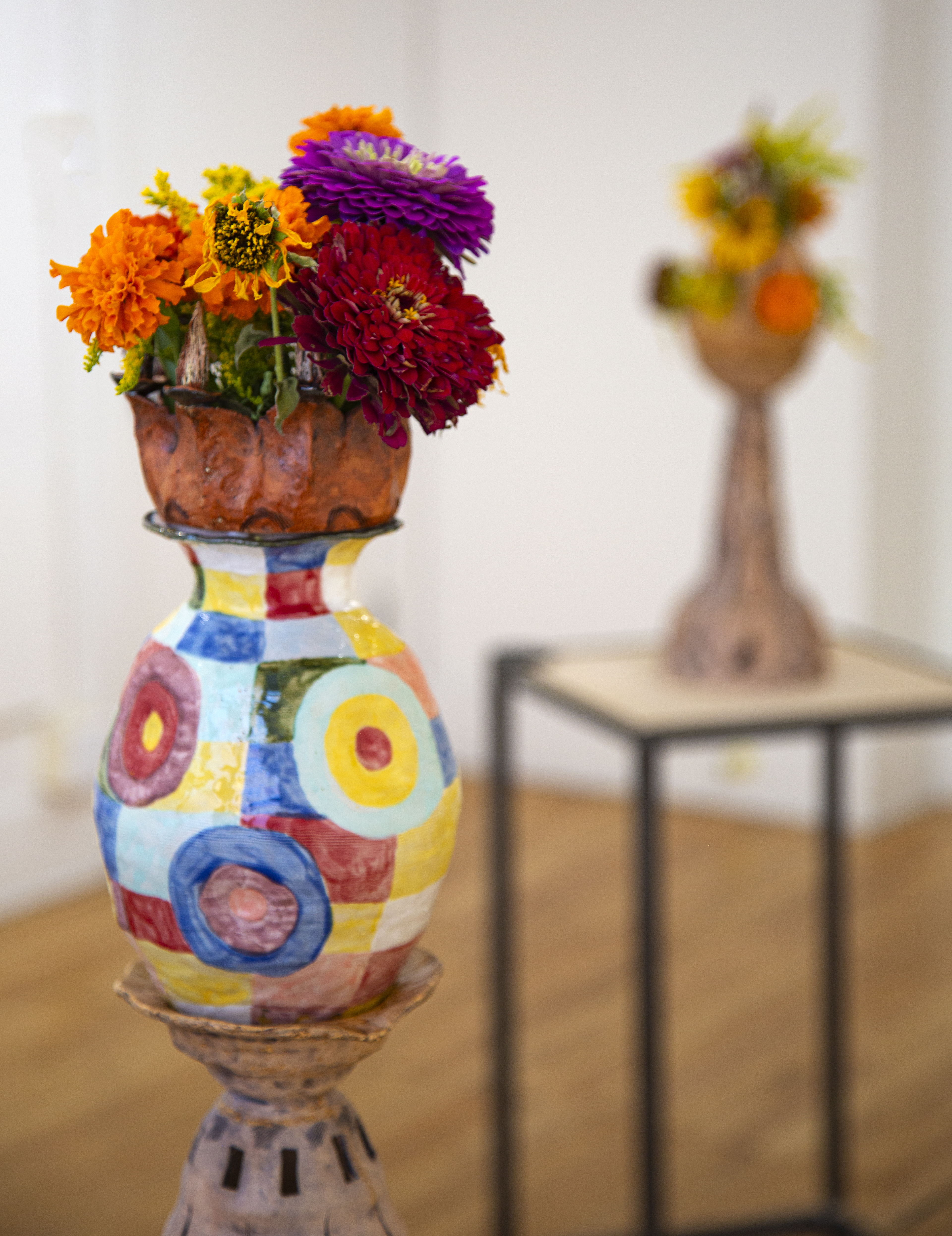


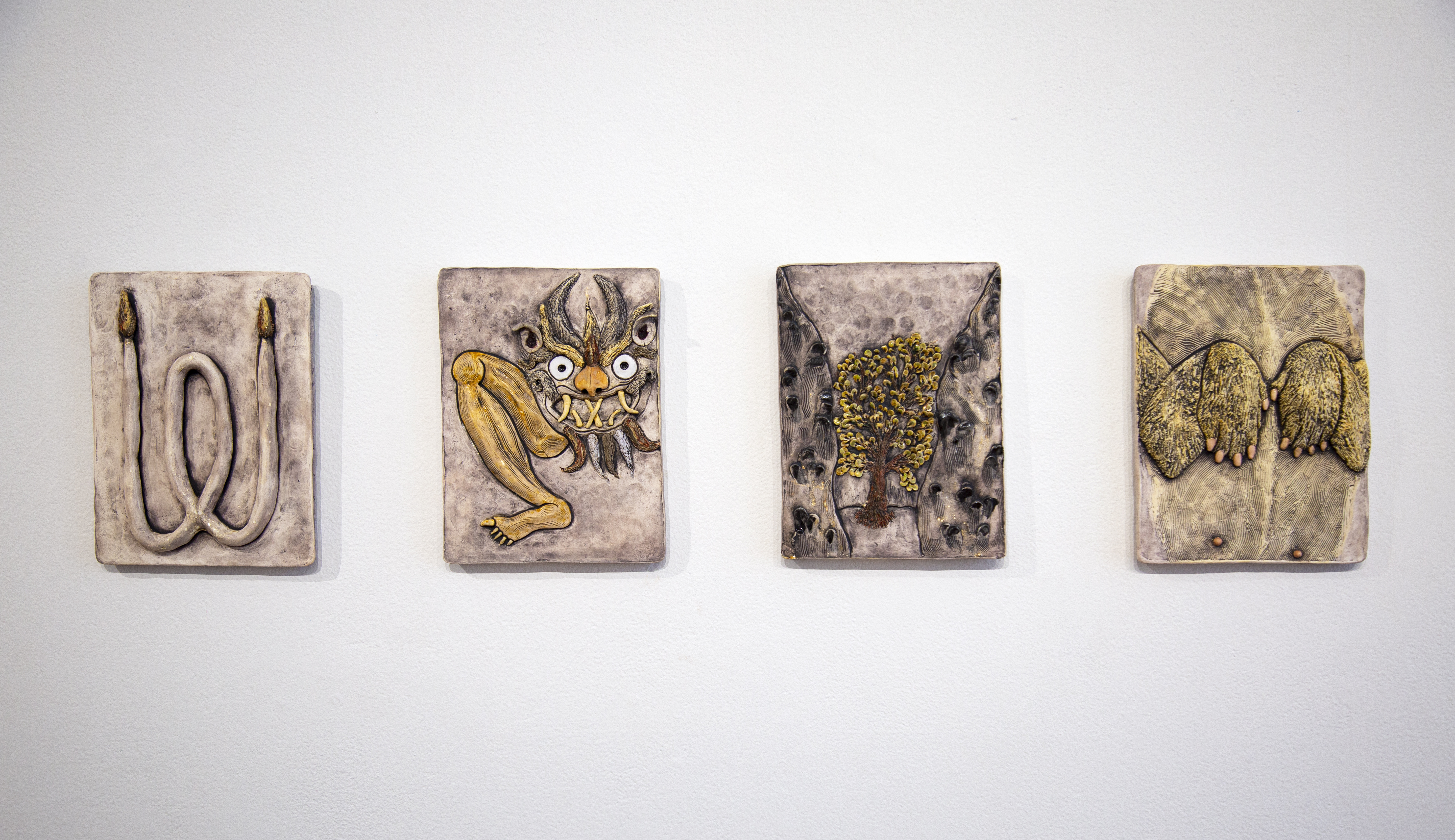
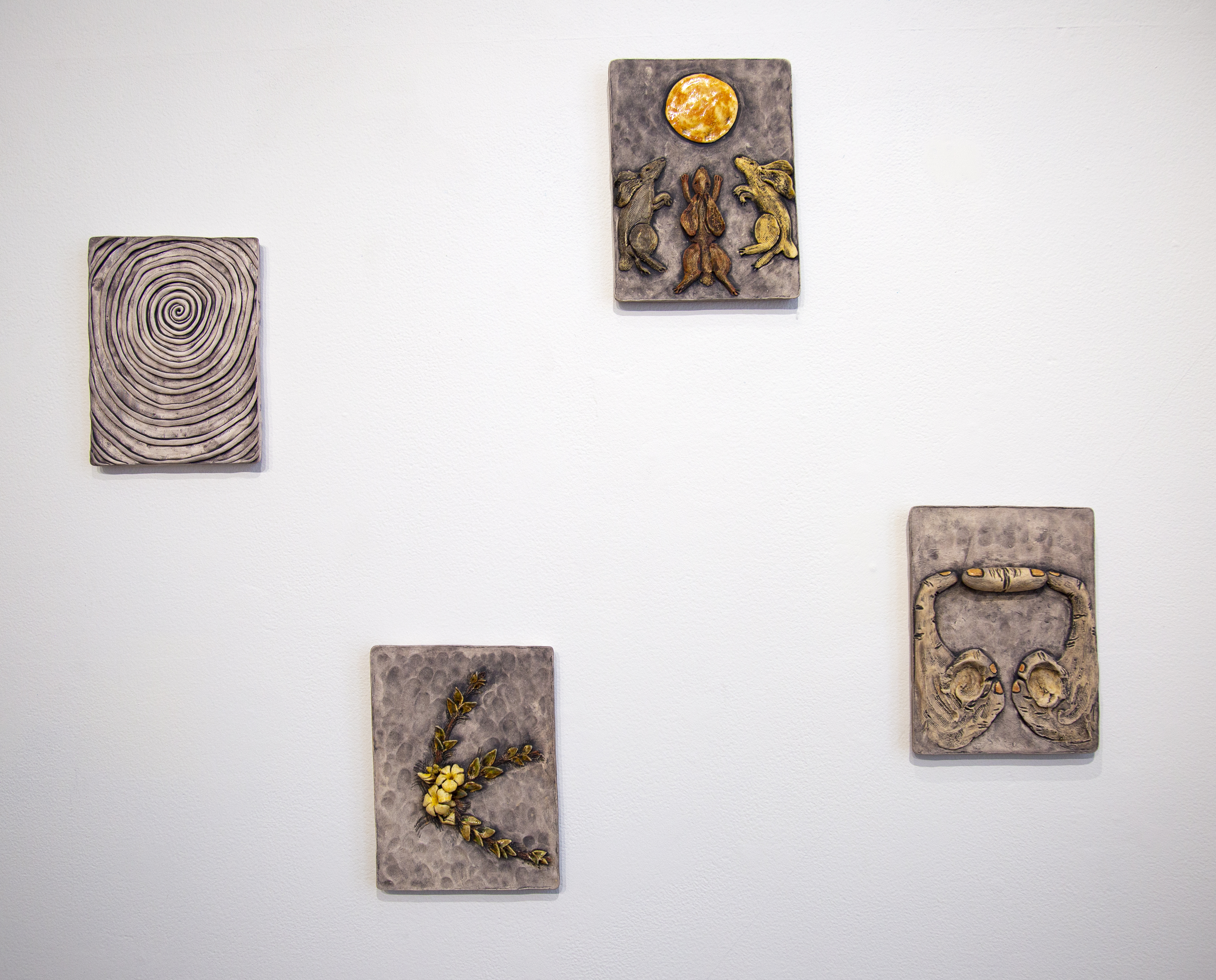
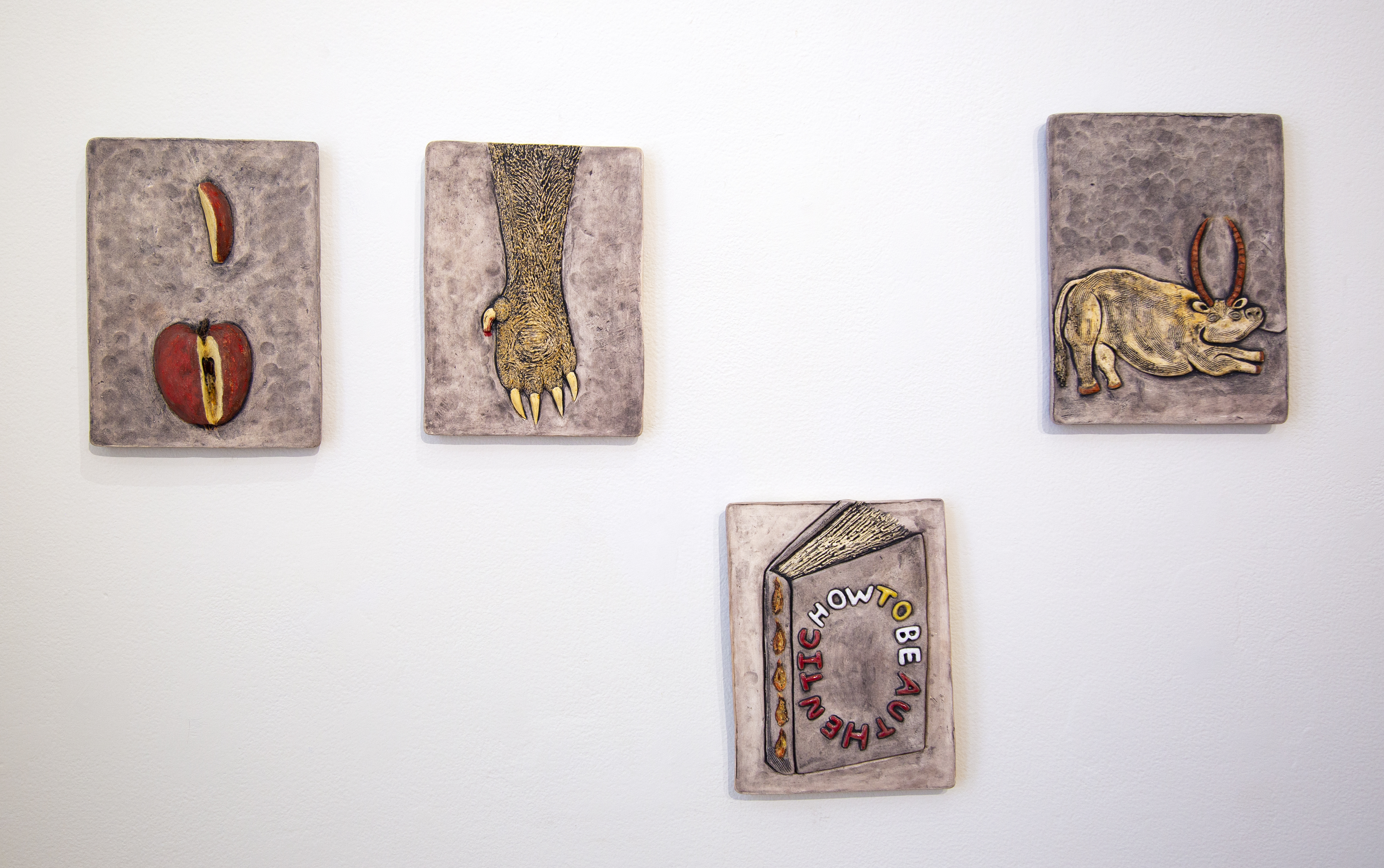
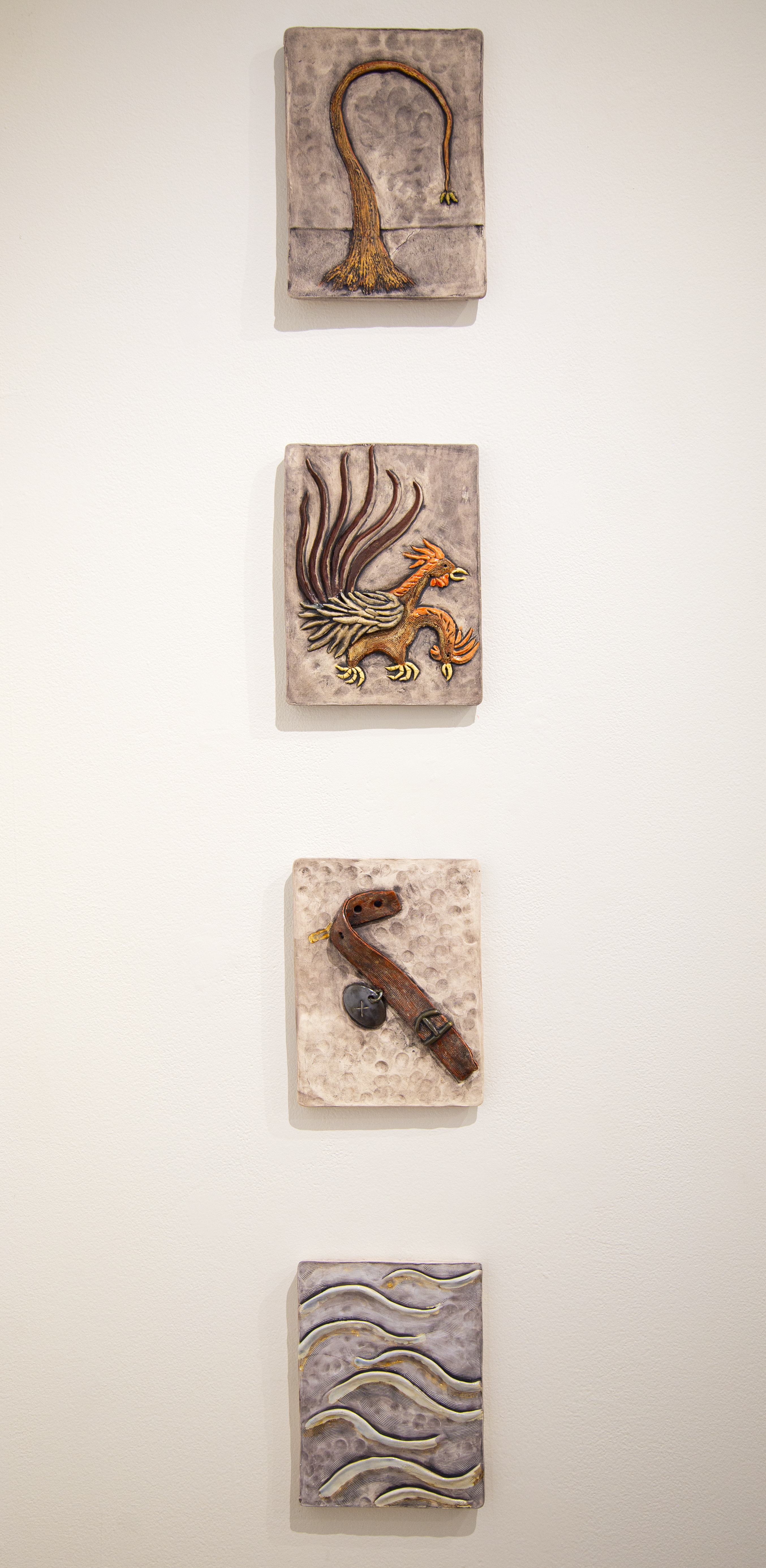

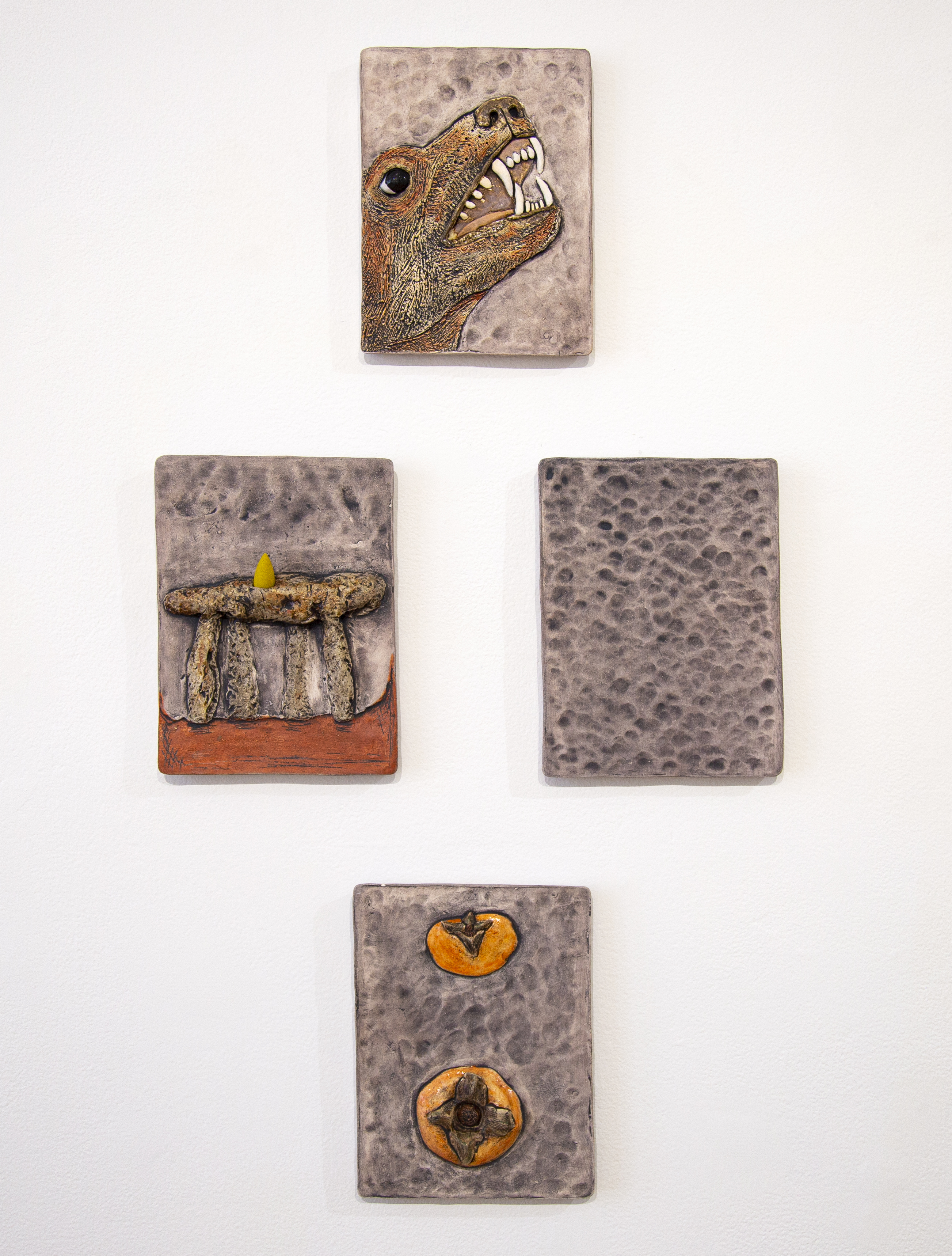


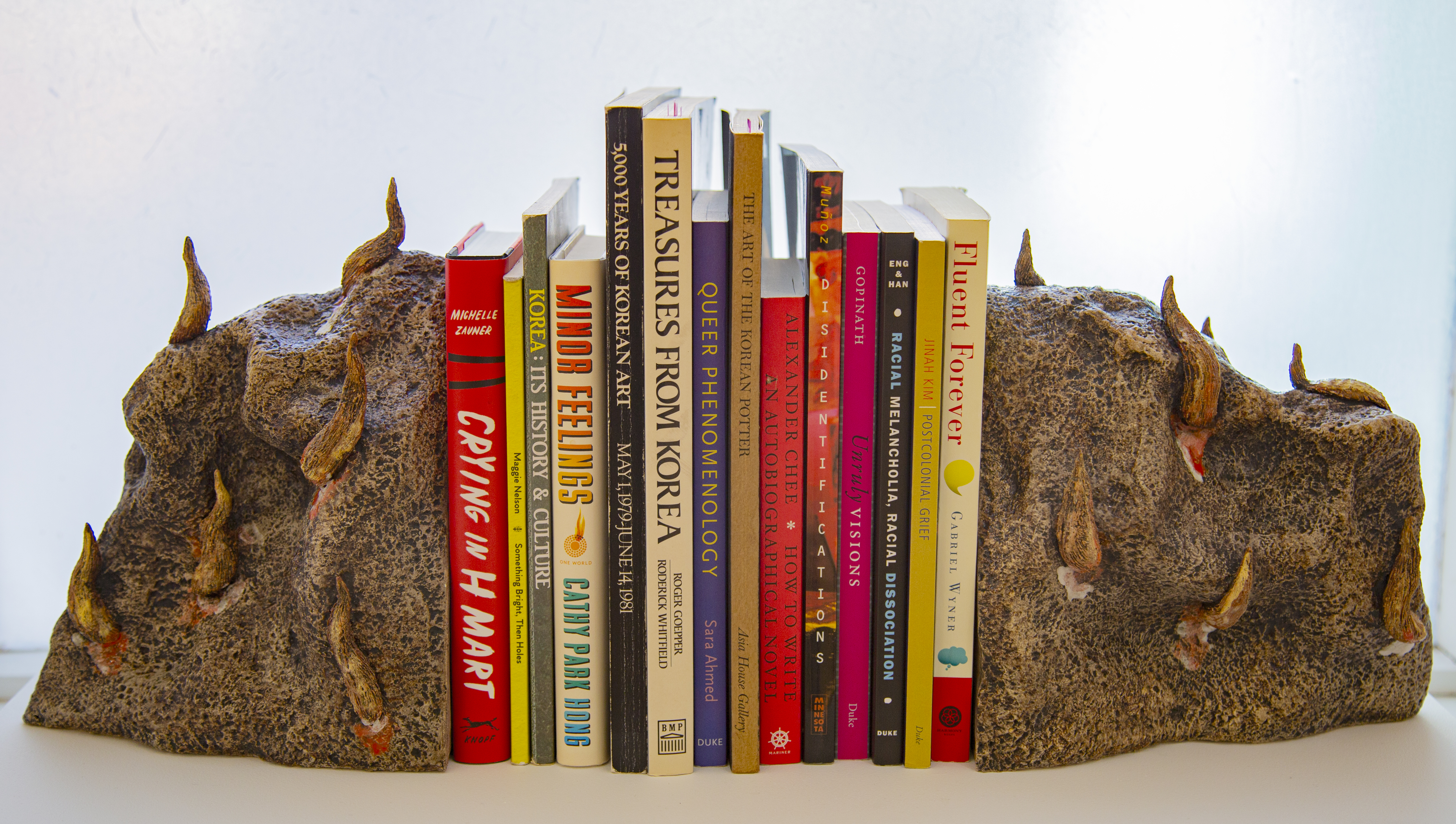

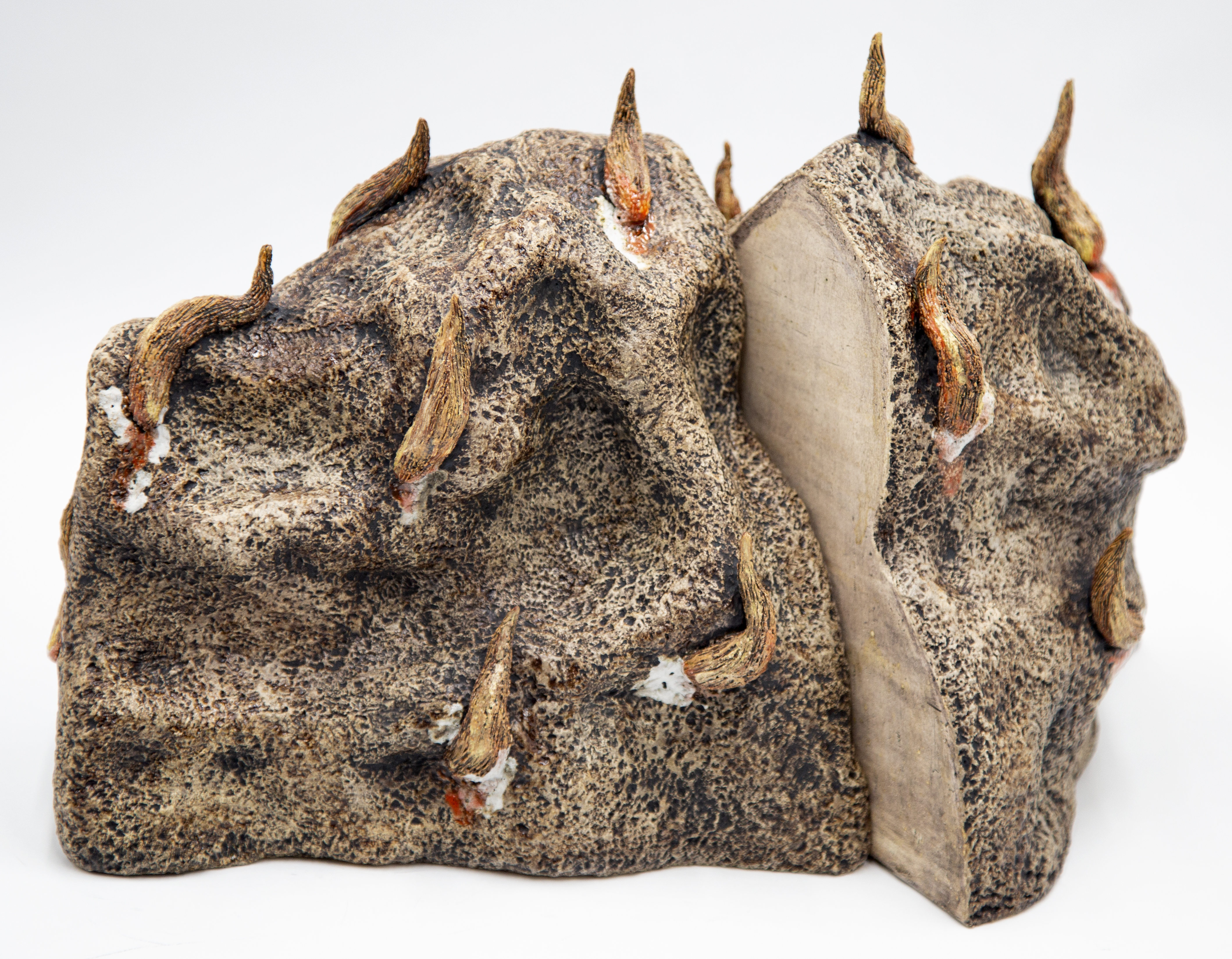
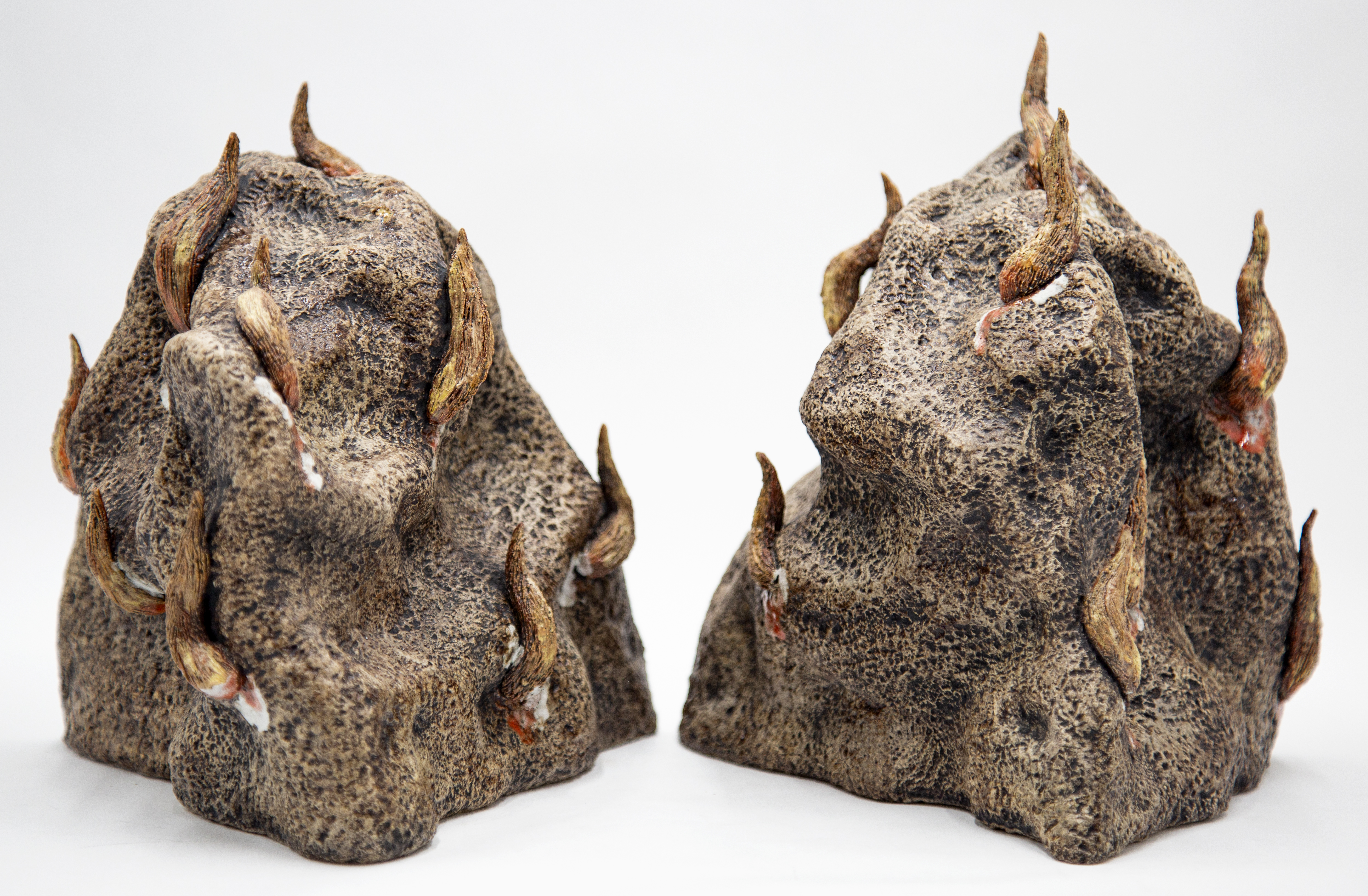

Yellowbells for Umma
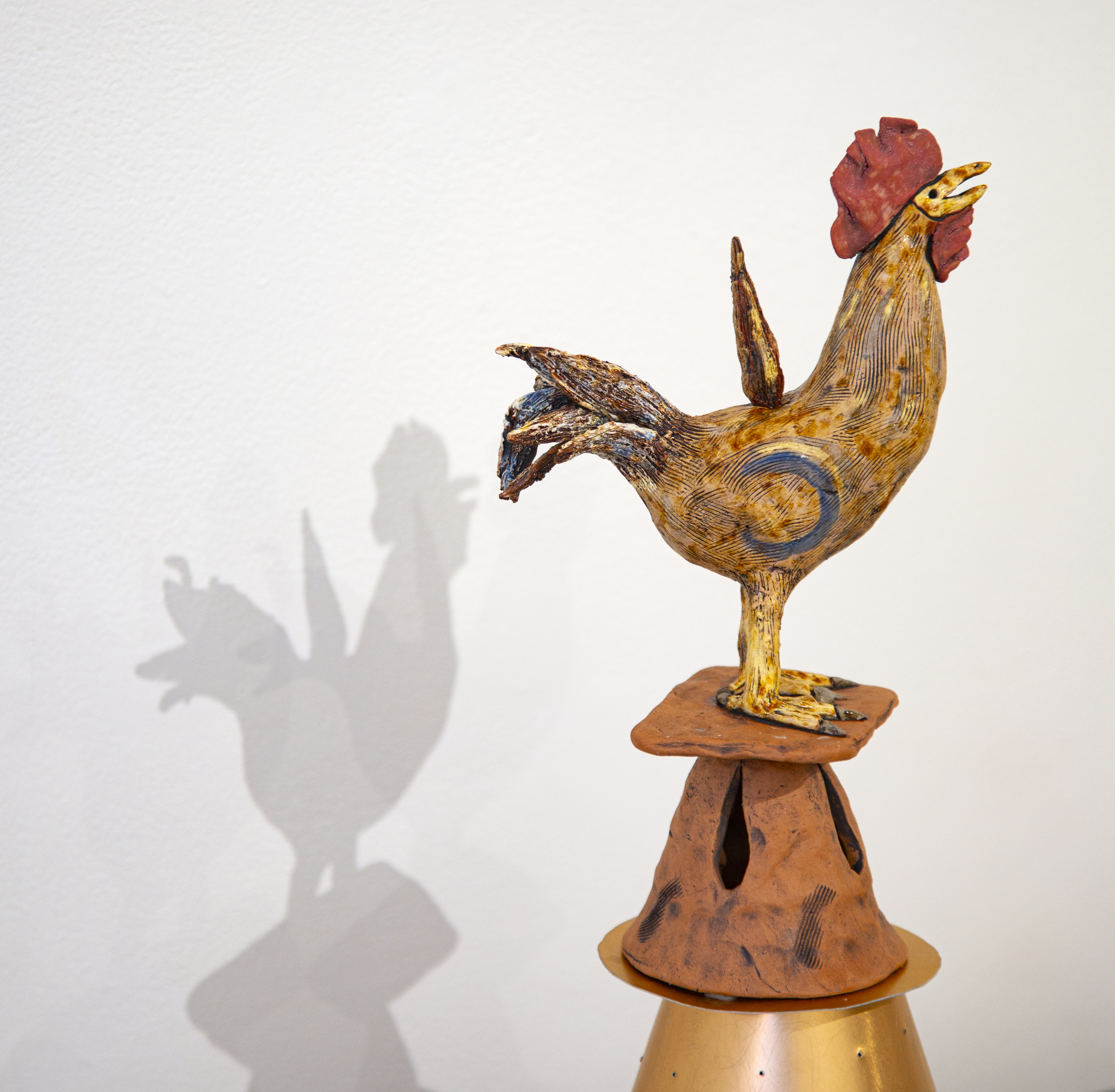
Cockling (Self-Portrait)
